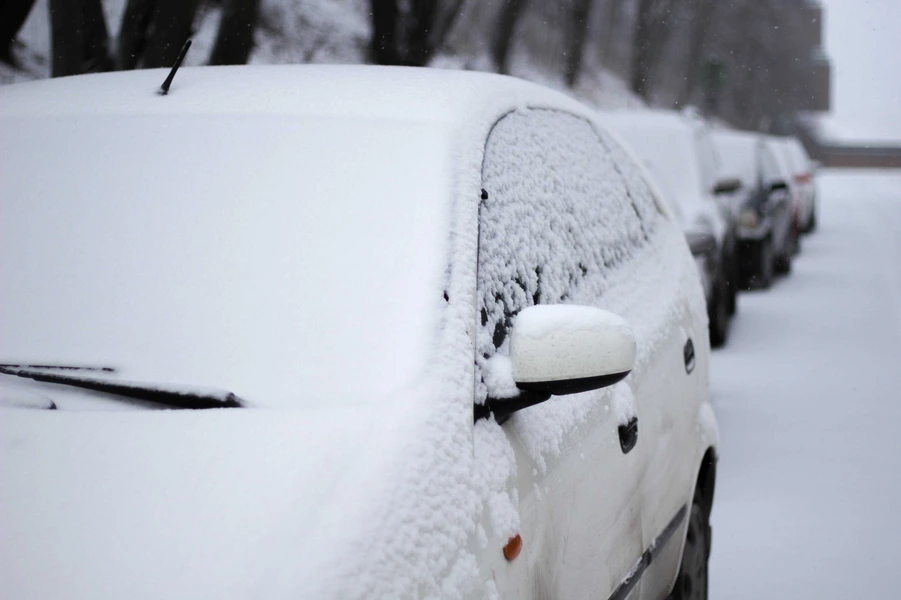Winter is upon us and there are a few things you can do to protect your car in the cold months ahead. Whether you live in the north and have been battling the cold for months or your further south and are bracing for what’s to come, these tips will help you insure your car stays on the road until warmer weather comes.
1) Check Your Tire Pressure - Your tires are among the most important things to pay attention to when preparing your car for the winter. If you live in an area that gets a lot of snow, you should put on a set of winter tires. Otherwise, just make sure that you’ve got ample tread life on your existing tires. While you’re at it, make sure the tire pressure (psi) is at the level directed by the manufacturer, as these tend to drop when the weather gets colder outside.

2) Perform Windshield Wipers and Fluid Checks - You don’t want to get caught in the freezing rain or a blizzard without adequately functioning windshield wipers. Worn out windshield wipers can be extremely dangerous in low-visibility situations. If your wipers need replacing, do it now before it’s too late. In addition, make sure you have enough windshield wiper fluid to contend with those winter storms. The grime that accumulates during the winter will require ample freeze-resistant windshield washer fluid.

3) Check Your Battery - Cold weather can be extremely taxing on a car battery. The low temperatures are debilitating to the chemical reactions required to charge and power the battery. A car battery can be reduced to half its power at temperatures as low as 5 degrees Fahrenheit. The car’s motor also requires more energy from the battery in cold weather.

4) Change Your Oil - Getting an oil change before the winter time will assure that the oil viscosity is right for the weather. Changing the oil and filter will ensure that your vehicle is functioning at its optimum for the winter. The frequency at which a car’s oil should be change obviously varies based on the car but ranges from 3,000 to 10,000 miles between changes.

5) Inspect Your Exhaust - Winter elements such as ice, slush, and especially salt can have a corrosive effect on your exhaust system. You exhaust system keeps your car from expelling toxic fumes into the environment. Aside from this vital function, the exhaust system also muffles the sound that the engine creates—thus the name muffler. If you are unsure if your car’s exhaust is in need of replacement, a qualified mechanic can check to see if everything is in order.

6) Perform Inspections - Check all your hoses, belts and fluids. There are a host of hoses under your hood that may be in need of replacement before old man winter arrives. Your mechanic can check to make sure everything is in working order for the winter, and replace any hoses that look brittle or prone to failure. Aside from changing the oil, your mechanic should also top the rest of your car’s fluids.

7) Consider a Car Cover - A great way to avoid having to scrape snow and ice off of your car’s windows is to invest in a car cover. Car covers allow you to avoid the time it takes to clean snow that has accumulated on your car overnight. The last thing you want to do on an early winter morning is to hover over your vehicle with a brush/scraper.

8) Maintain Gas Reserve - If you live in an area that is prone to temperatures that are near freezing, you will need to pay attention to how much fuel is in left in your tank. Maintaining an insufficient fuel level will leave your car vulnerable to gas line freezing. If moisture forms in your gas lines, your fuel lines can freeze. Keeping your fuel level above a half tank will assure that you don’t run the risk of having your fuel lines freeze up.

9) Emergency Supply Stock - There’s always a possibility that you may get stranded. The reason to winterizing your vehicle is to be forward-thinking and prepared just in case. An emergency survival kit will equip you with the things you need in case of an emergency. Some things that may be in your survival kit are water, non-perishable food, road flares, can of Fix-a-Flat, flashlight, jumper cables, phone charger, and first aid supplies.

One of the worst things you can do is put off the winterization of your car. Once winter sets in, it may be too late to save yourself from an inconvenient repair due to the winter weather. Don’t let procrastination have you stranded in the cold. If you pay attention to the things mentioned here, your car should be ready for the winter. I hope this information has helped you prepare for the weather ahead.
Contact me if you are looking for a new vehicle that is already winter ready!
Brian Chapman
(901) 246-4441
Homer Skelton Ford









